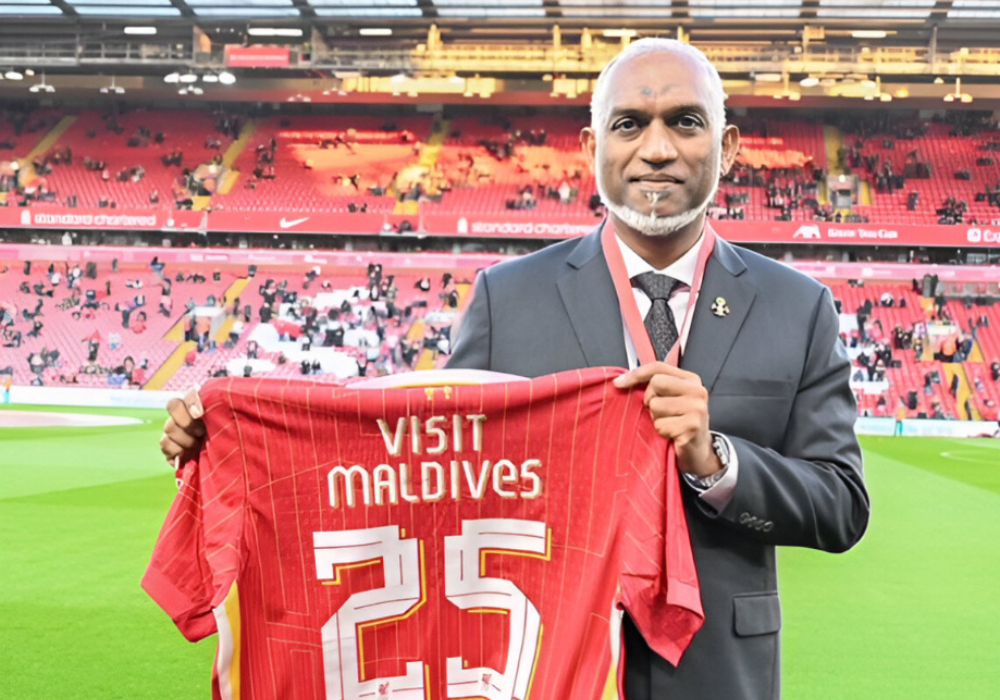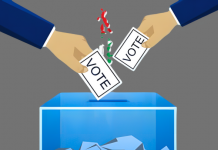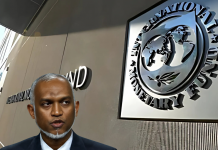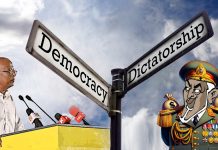President Dr. Mohamed Muizzu’s recent UK trip has kicked up a storm of suspicion, and his explanation isn’t clearing the air. In his weekly podcast, Muizzu said his April 1 to 5 visit—billed as an official trip to launch a tourism campaign with Liverpool Football Club—was mostly paid for by a private company. But his refusal to share key details leaves the public asking: why is a private corporation bankrolling a state visit, and what’s in it for them?
Muizzu claims the government spent just MVR 153,689, covering only his plane ticket. Everything else—tickets for his team, accommodation, and other expenses—was allegedly covered by an unnamed private company. Yet, he hasn’t said who this company is, how much they paid, or why they were so eager to fund an official trip. This secrecy raises a pile of troubling questions.
.
.
.
.
.
.
.
.
.
.
Why would a private corporation sponsor a president’s state visit? Official trips are supposed to represent the nation, funded by taxpayers to avoid any hint of outside influence. So why did Muizzu let a company pick up the tab? Was the government too broke to cover the costs, or was there another motive? If this was truly a state visit, why blur the line between public duty and private interests?
Who is this company, and what do they want? Are they involved in tourism, hoping for a slice of the campaign’s benefits? Do they have government contracts already, or are they angling for future deals? Without a name or explanation, it’s hard to believe this was just a generous gift. Why would any company spend big on a president’s trip unless they expected something in return—access, influence, or favors?
Then there’s the question of why Muizzu accepted the funding. As president, he knows how this looks. Why risk the appearance of a conflict of interest? Did he or his team consider saying no to keep things clean? If the trip was so important for the nation, why not use public funds to avoid any whiff of impropriety? His decision to go along with private sponsorship feels like a gamble—one that’s now sparking distrust.
The law makes this even murkier. Article 16 (a) of the Prevention and Prohibition of Corruption Act bans government officials from asking anyone seeking government work or partnerships to cover personal expenses. Even if Muizzu didn’t ask directly, accepting the money could still raise legal red flags. Why didn’t his team flag this as a potential issue? If the company has any government ties—say, in tourism or development—this could look like a sneaky way to gain favor. Was that possibility even discussed?
What’s more, why set this precedent? If a company can pay for a state visit, what stops others from funding future trips, meetings, or even government events? How do we know decisions are being made for the public and not for whoever’s got the deepest pockets? Why didn’t Muizzu insist on transparency to shut down these concerns from the start?
The President’s Office claims it shared details, but the public’s still in the dark. How much did the company actually spend? Were there side meetings or promises made? Why won’t Muizzu name the company and explain their role? His half-hearted attempt at openness—admitting the private funding—has only made things worse. If there’s nothing shady, why not lay it all out?
Why would a private corporation sponsor Muizzu’s state visit, and why did he go along with it? Was it a misstep, or is there a bigger story we’re not being told? Until Muizzu names the company, shares the full cost, and proves there’s no hidden agenda, these questions will loom large. The longer he stays silent, the louder the doubts grow.


















